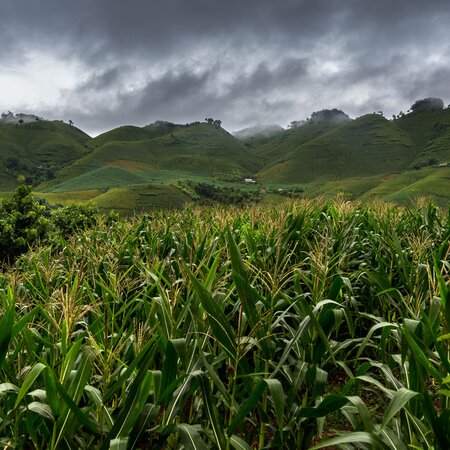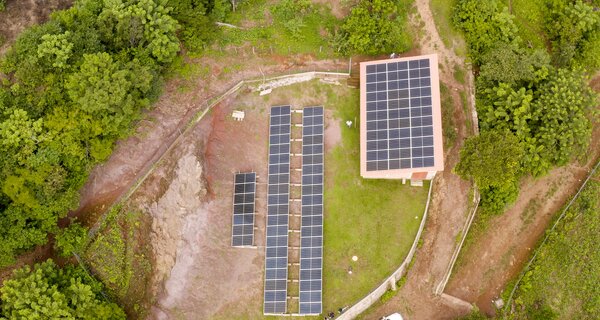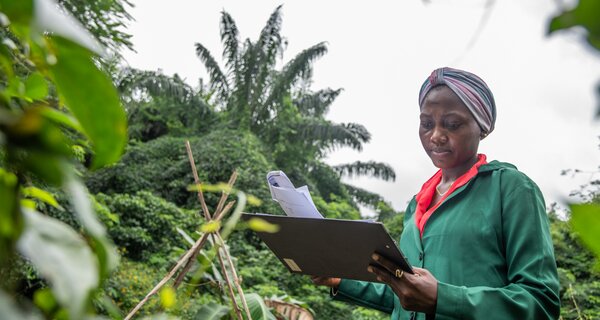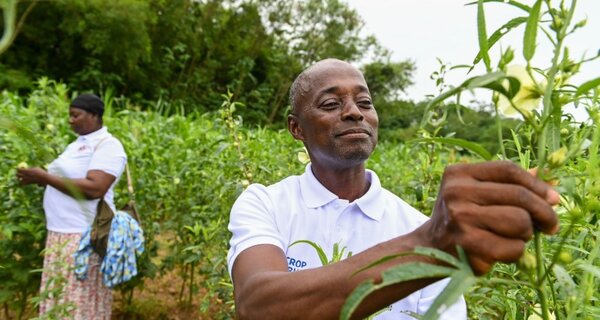Ugandan Farmers Teach Scientists to Rethink Seed Systems
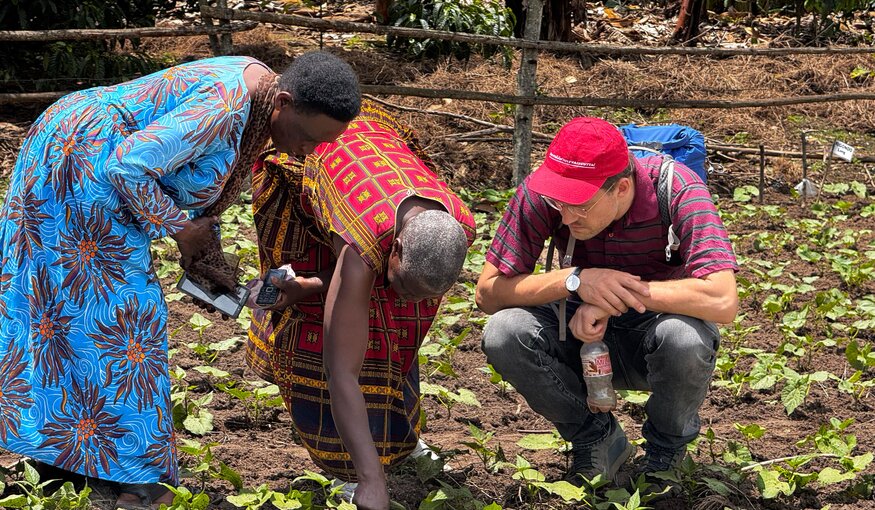
26 May 2025
When Adriana was a young girl in rural Uganda, she stopped eating local vegetables. They were seen as “not modern,” a mindset that left her community grappling with malnutrition and rising food costs. “Now we’ve realized the problem,” she says. “The food we once ignored is exactly what we need.” Thanks to community-led efforts, these traditional crops are making a comeback, and with them, a new generation of knowledge.
It’s a lesson that struck home for 28 postgraduate students, researchers and development practitioners who recently travelled to Uganda to learn directly from farmers like Adriana. Their goal was to understand how opportunity crops, neglected and underutilized species, can improve nutrition, boost incomes, and strengthen resilience in the face of climate change.
The two-week course “Seed Systems of Opportunity Crops and the Diversification of Food Systems” was held from 23 March to 3 April in Uganda. Jointly organized as a PhD course of Wageningen University & Research (WUR) and implemented with the Norwegian University of Life Sciences (NMBU) and Makerere University (MU), the training brought together participants from Africa and Europe as part of the BOLD Project and the Rooted in Diversity program, both funded by Norad. Other partners included the Crop Trust, Oxfam Novib, the Alliance of Bioversity International and CIAT and the International Potato Center (CIP).
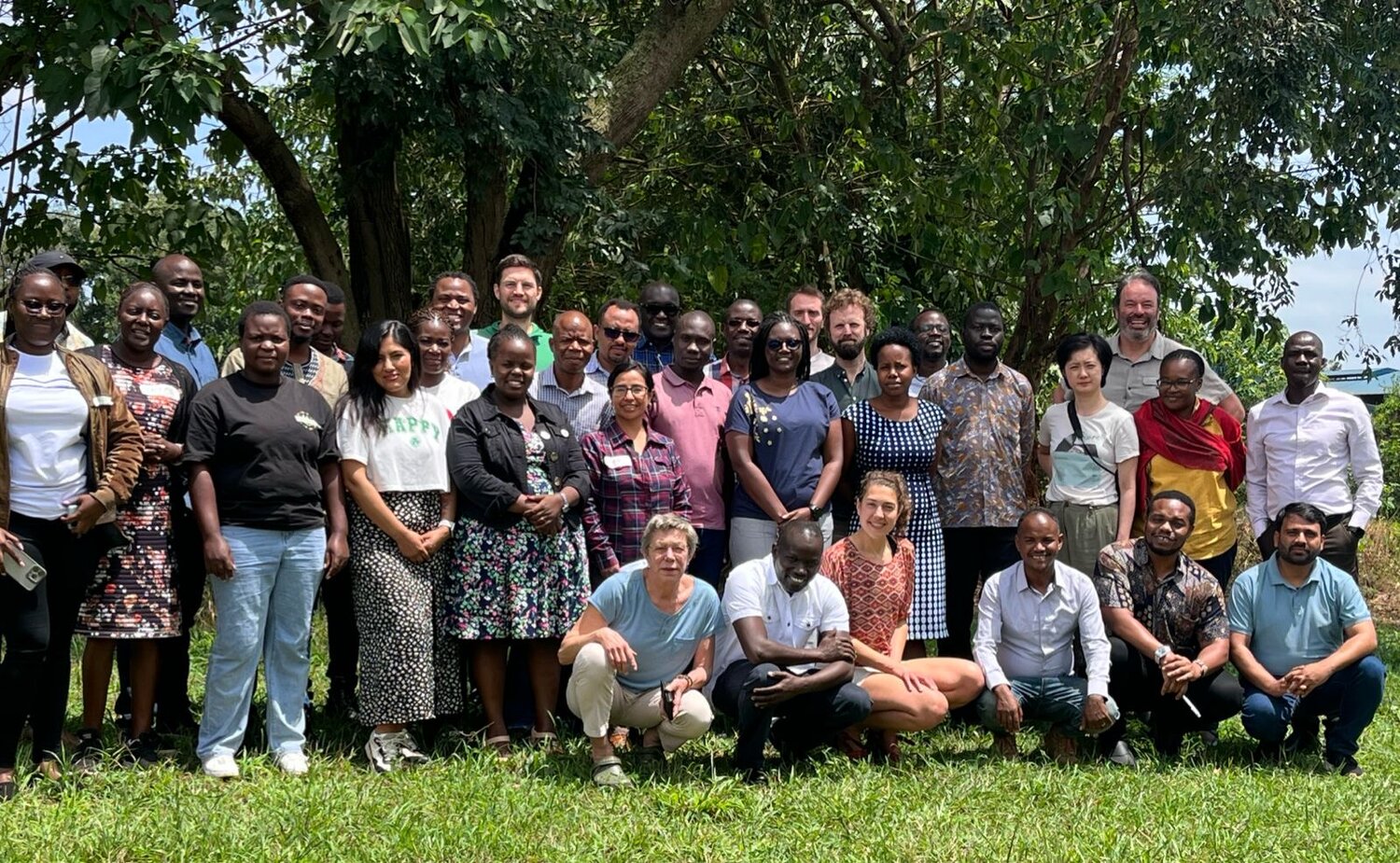
Participants from across Africa and Europe gathered in Uganda to learn directly from farmers about the role of traditional crops in resilient seed systems. Photo: Virtual Seed Academy
The doctoral candidates, postdocs, researchers as well as practitioners from non-governmental organizations and the public sector first met at the Kabanyolo Research Station of Makerere University. There they mapped out key issues in seed systems, with a focus on opportunity crops.
The group then visited two rural communities in Uganda. The first was near Mbarara in the Western Region and the other near Soroti in the Eastern Region. They conducted interviews with local farmers, often in pairs and with the help of an interpreter, to better understand how these crops support people’s well-being.
Real-Life Research
The research centered on real-life issues that farming households face. What crops are they growing? Where do they get seeds? How have climate and market pressures influenced their choices? What role do traditional crops play in incomes and diets?
The visits revealed how traditional opportunity crops are integral to people’s livelihoods and how community-led efforts are making a difference to their promotion. The diversity across crop types – fruits, grains and herbs – also showed their wide-ranging value and potential.
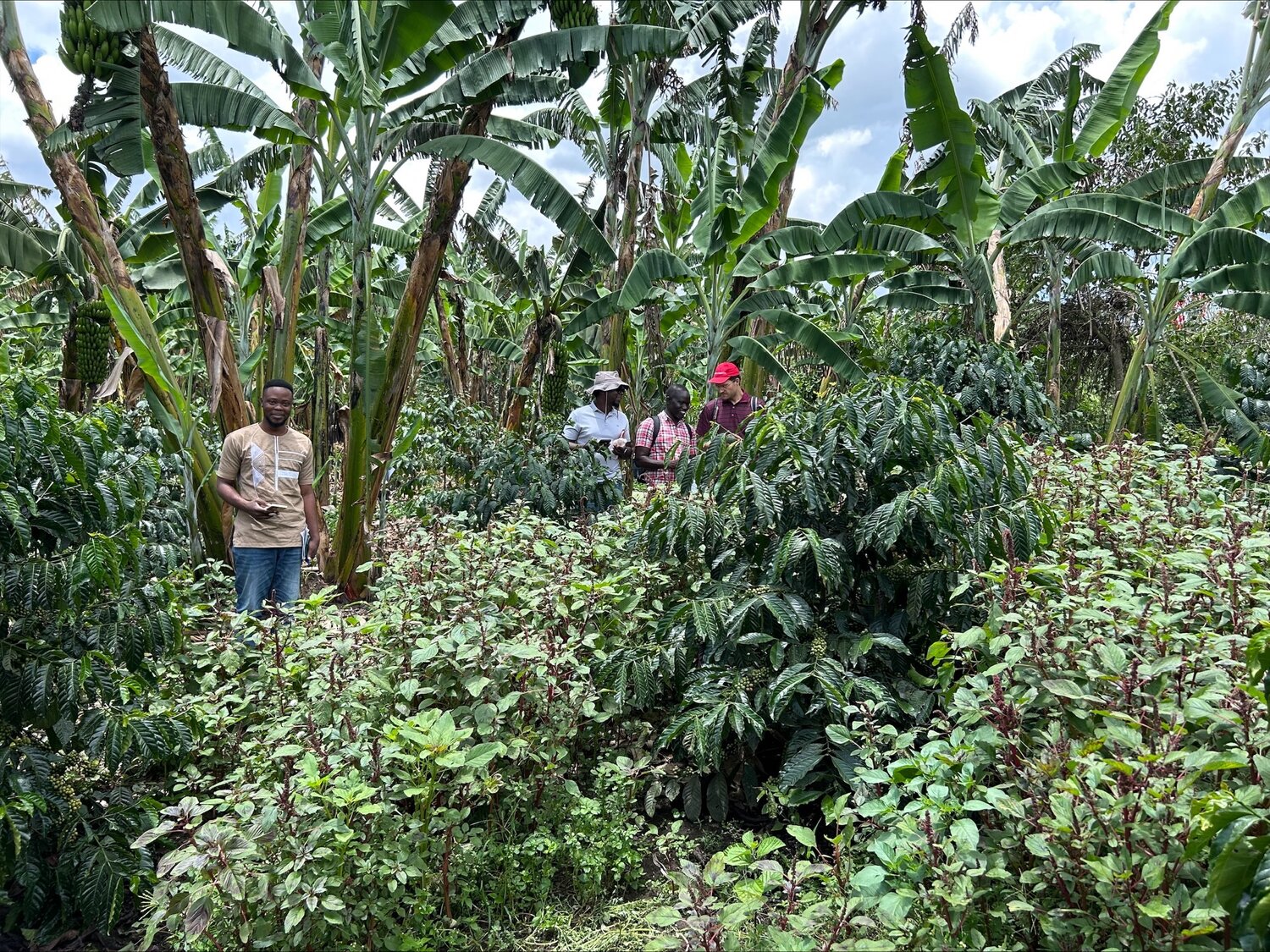
A rich mix of banana, coffee, herbs and traditional vegetables shows the potential of opportunity crops to nourish people and landscapes. Photo: NMBU
Opportunity crops are usually cultivated by smallholder farmers in limited, marginal areas using traditional knowledge, with little or no support from agricultural extension services or researchers. At the same time, though, they provide great benefits and supplement household incomes and nutrition.
“The course’s approach was integrating academic knowledge with hands-on field experience to enhance learners’ skills and contextual understanding,” says Gloria Otieno, scientist and specialist in genetic resources, seed systems and food security policy at the Alliance of Bioversity International and CIAT.
Researchers saw firsthand that knowledge and innovation thrive at the community level. Analysis and sharing of findings showed that food and seed systems are intricately linked, particularly when it comes to the role of traditional crops in strengthening resilience and nutrition, according to Conny Almekinders, a social scientist at WUR.
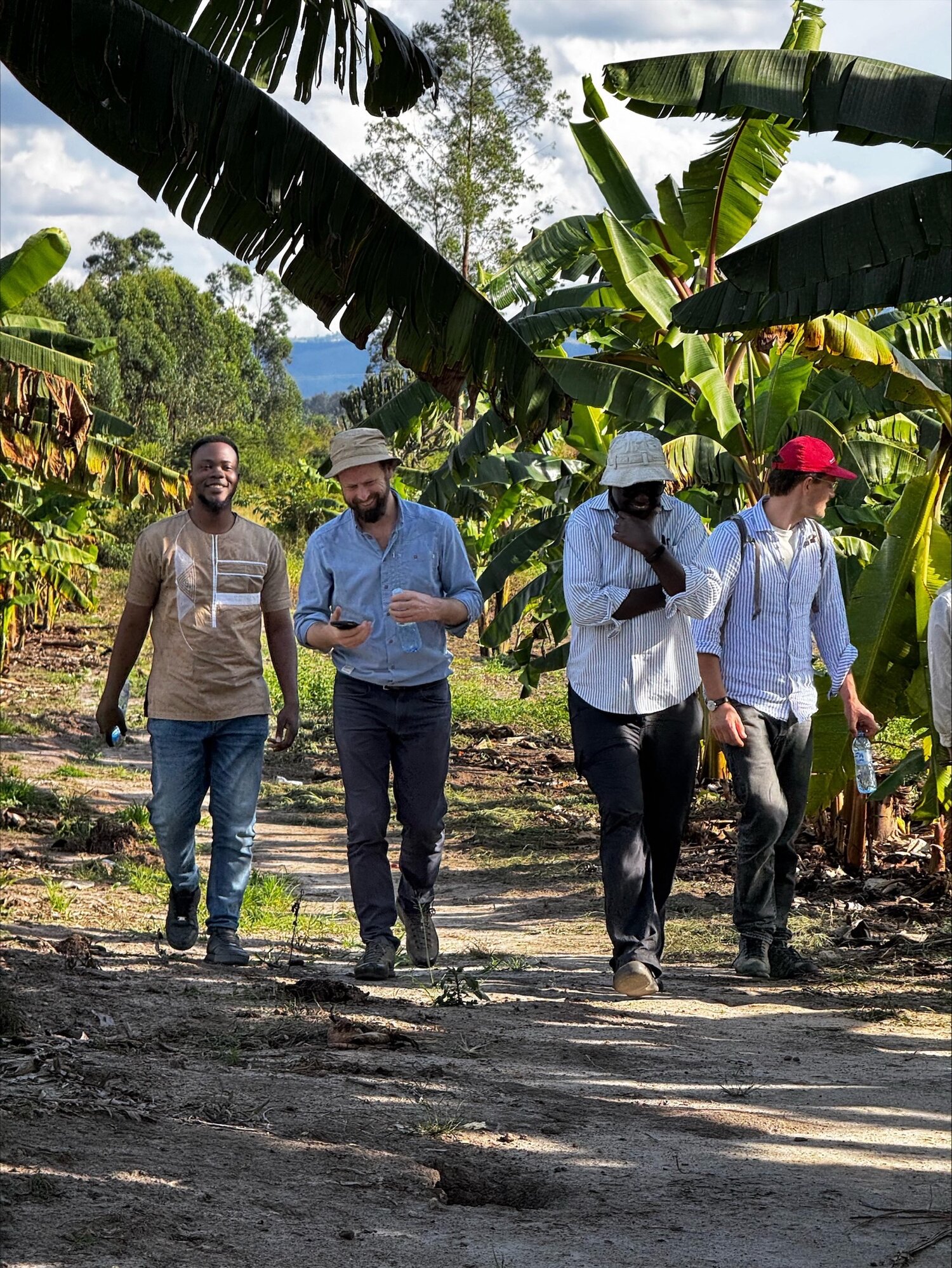
Course participants exchange ideas on agrobiodiversity and seed systems during a visit to smallholder farms near Soroti. Photo: NMBU
In Orungo, an hour’s drive from Soroti, course participants met farmer Robert and his family, who shared how their community is rediscovering the value of traditional crops. Once dismissed as old-fashioned, these local plants are now seen as reliable, nutritious and affordable alternatives to costly “modern” foods.
Through farmer field schools and community initiatives, families are reviving knowledge about these often semi-wild species – plants that thrive with minimal inputs and provide a steady food source. “Once you have them on your farm, you always have them there for you,” his mother Adriana explained, highlighting their resilience and accessibility.
Real-World Results
By engaging directly with farmers, the course’s participants gained new perspectives and valuable insights. This kind of firsthand research mixed with training is not common, but it builds practical skills.
“The reporting back to the communities resulted in rich dialogue about conservation and development, seed production, dissemination and governance, and food systems links,” says Stef de Haan, a professor of seed systems and agrobiodiversity at WUR.
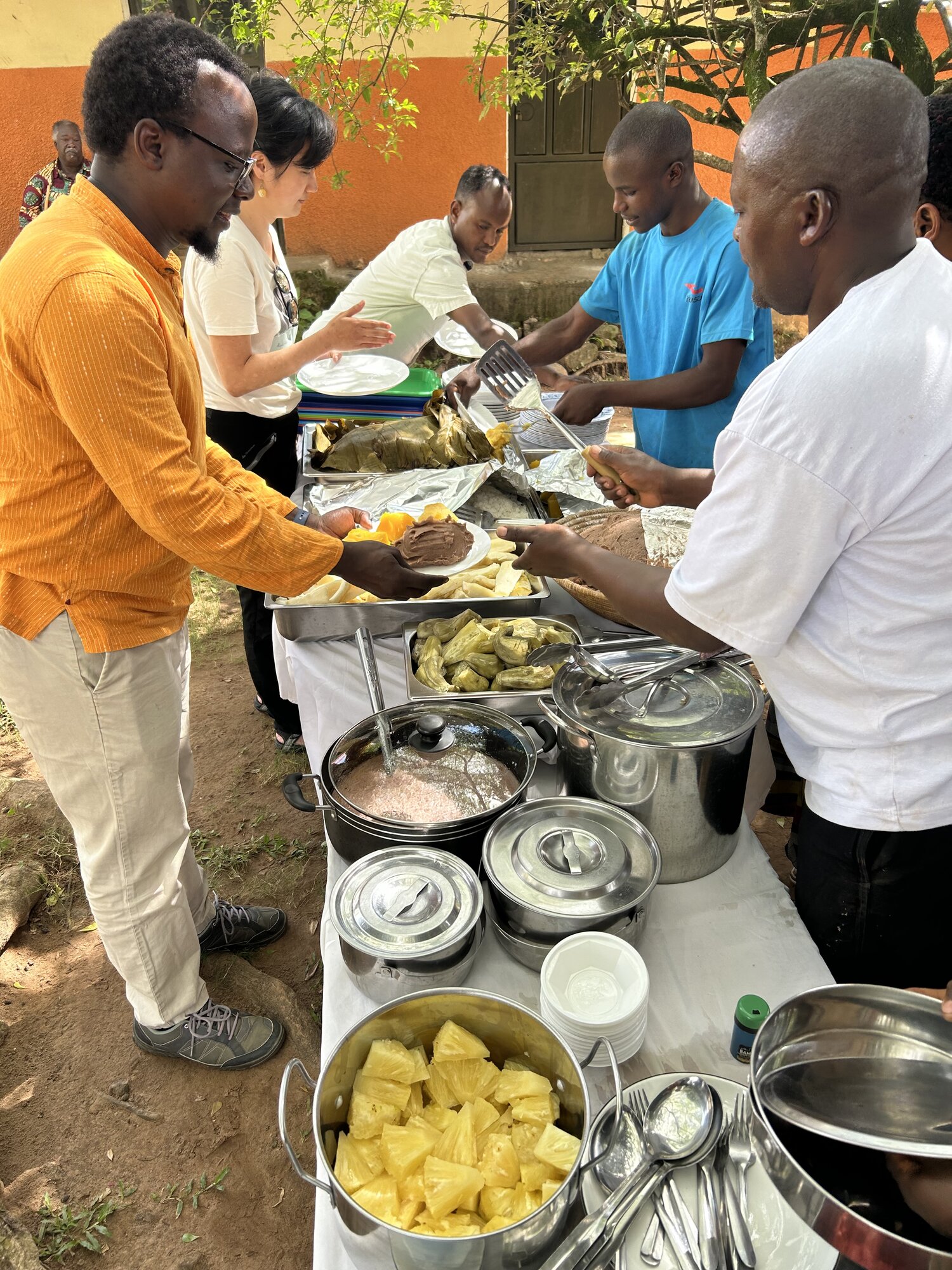
Participants and hosts connect over a shared meal of local dishes – an essential part of understanding food and farming culture. Photo: NMBU
Participants agreed that the field visits unearthed an amazing wealth of information on the experiences of individual families and community initiatives.
“The inclusion of fieldwork and interaction with the community, people and stakeholders were effective in promoting understanding of the local seed and food systems in Uganda,” says Pragati Raj Sipkhan, a researcher from Nepal. “Bringing a diverse group of people together and learning from each other were highlights of the course.”
Seeds for Academic Understanding
The course in Uganda was part of an initiative known as the Virtual Seed Academy, which aims to “hybridize research and practice” in seed system work globally.
“The Seed Academy courses are like bonfires, around which scholars and practitioners from around the world can gather,” says Ola Westengen, a professor at NMBU and lead of the BOLD Project seed systems work. “We see that the courses build community, connecting people from many disciplines and backgrounds with a shared interest in seed systems.”
The course in Uganda was the first held in Africa. Future editions are planned for Benin in Africa and the Andes of South America.
“The idea of hosting in different places makes the course more accessible to students from all around the world,” says Sarah Dalle, a researcher at NMBU who works on the BOLD Project. “It provides new learning opportunities based on the specific context.”
With the ongoing support of BOLD and other projects, these courses can shape the future of agriculture. In Uganda, the course showed that opportunity crops are a cornerstone for more resilient, nutritious and economically viable seed systems, providing insights into how they can benefit farmers and the world for generations to come.
Categories: For The Press, For Partners, For Policymakers, BOLD, Environmental Restoration, Sustainable Agriculture

